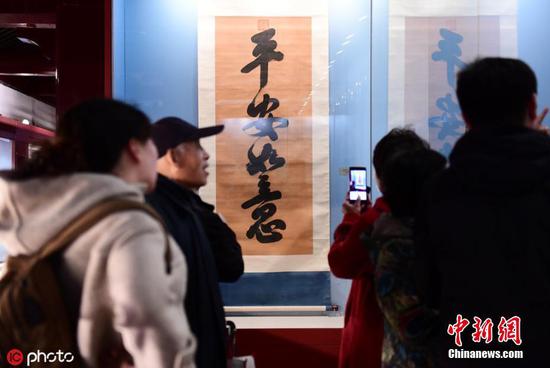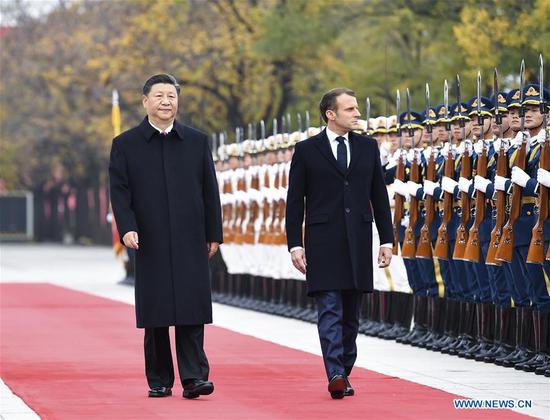Chinese students and their parents are reconsidering the United States as their top destination for a college degree, according to high-school counselors in China who took part in a survey by Amherst College.
The survey was sent to 364 counselors, and of the 54 who responded, 85 percent cited President Donald Trump's policies toward Chinese students as the biggest concern for Chinese parents, 78 percent cited safety, 65 percent pointed to the uncertainty of remaining in the U.S. for work after graduation, and another 65 percent listed visa restrictions.
"There were no concerns from Chinese parents two or three years ago regarding coming to the U.S. when we did the survey," Xiaofeng Wan, associate dean of admissions and coordinator of international recruitment at the Massachusetts college, who led the survey, told China Daily. "Now, it was surprising to see 87 percent of the counselors had such concerns."
"Our students have planned to go to college in the U.S. for years. However, a significant number of them are now looking at other countries, such as the UK, Canada and Australia," one counselor said in the survey conducted two weeks ago.
In recent years, American colleges and universities have seen growing enrollments of Chinese students. For the 2017-2018 academic year, there were more than 363,000 Chinese students attending American schools, accounting for about a third of international students in the U.S., according to the Institute of International Education.
Some of the most popular majors for international students are engineering, business and management, math and computer science.
The majority of international students pay full tuition, making significant financial contributions to American schools. In the 2014-15 academic year, international students contributed $30 billion to the U.S. economy, according to data compiled by The Wall Street Journal. Chinese students were responsible for one-third of the money spent by all international students in 2014.
However, a combination of factors, including tougher talk by Trump on immigration, more stringent visa rules and strained U.S.-China relations caused by the ongoing trade dispute have made studying in the U.S. less attractive to many Chinese students.
Last year, the Financial Times reported that Stephen Miller, a senior adviser to Trump who is known for his hardline approach toward immigration, suggested suspending all student visas for Chinese nationals. The proposal was later rejected due to its possible economic and diplomatic impact.
Last summer, the State Department implemented a new rule that would allow U.S. consular officials to put a one-year cap on visas for Chinese graduate students studying in certain fields of high-tech and engineering. Previously, those students were allowed to remain in the U.S. for as long as five years.
Some Chinese scientists were also caught up in visa complications. Last summer, Rao Yi, dean of science at Peking University, called the U.S. embassy in Beijing arrogant after he was denied a visa to enter the U.S. for a science workshop.
The New York Times reported in April that as many as 30 Chinese professors in the social sciences, heads of academic institutes and experts who help explain government policies have had their visas to the U.S. canceled in the past year or put on administrative review.
In June, China's Education Ministry issued a warning to Chinese students against studying in the U.S., citing possible visa risks under the Trump administration.
During this year's Group 20 summit in Osaka, Japan, Trump said that he welcomed more Chinese students to the U.S..
"We want to have Chinese students [go] to our great schools and great universities. They are great students and tremendous assets," he said. He also said that Chinese students should be treated "just like anybody else" when it comes to immigration.
Other countries have moved to attract Chinese students through relaxed visa rules and a relatively easier pathway to citizenship. In Canada, international students with Canadian education experience will be able to achieve permanent residence quickly through the Canada Express Entry exercise, which was introduced in January 2015.
In the UK, the education sector implemented a new immigration rule this year that will extend the work authorization to two years for international students graduating in the 2020-2021 academic year.


















































